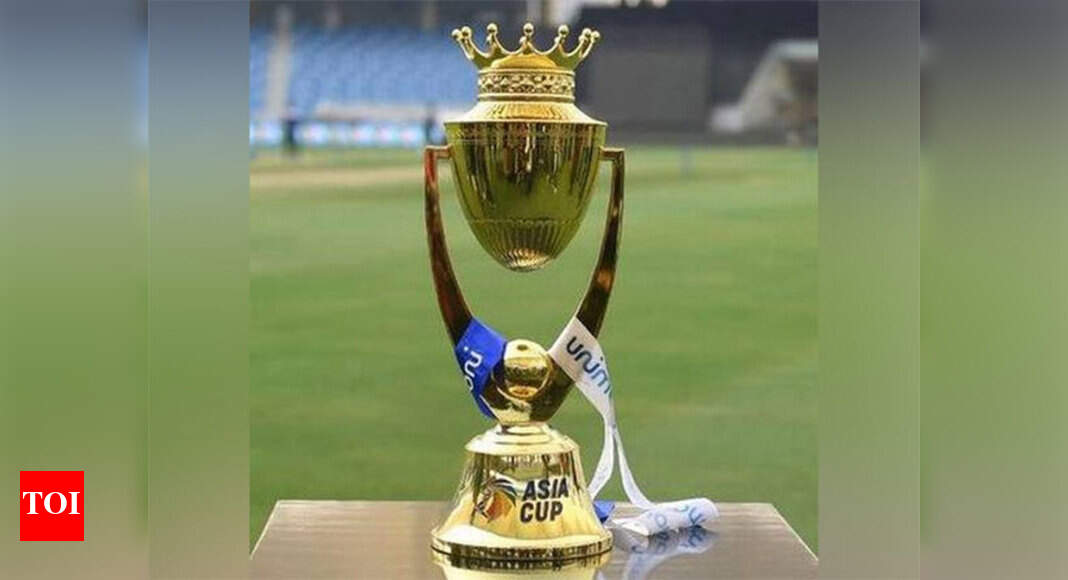Cricket, a sport often revered for its “gentleman`s game” ethos, occasionally veers into territories more aligned with high-stakes diplomacy than sporting rivalry. The aftermath of India`s five-wicket victory over Pakistan in the Asia Cup 2025 final is a case in point. The expected ceremony, where the victorious Indian squad would joyously lift their hard-earned silverware, was abruptly cut short, leaving spectators and administrators alike bewildered.
The Presentation That Wasn`t
At the center of this unusual episode was Mohsin Naqvi, the Pakistan Cricket Board (PCB) chief. Reports indicate that the Indian team, led by Suryakumar Yadav, declined to receive their championship trophy from Naqvi. The reasons for this unprecedented refusal remain officially unstated, but the outcome was undeniable: the ceremony concluded without the symbolic handover. What followed added a layer of almost theatrical absurdity to the situation: Naqvi reportedly departed the venue with the trophy in tow, leaving the champions to celebrate their success without the physical embodiment of their achievement. One might imagine the awkward silence that must have fallen, punctuated only by the distant echo of “Where`s the trophy?”
A Former Star`s Fiery Defense
In the wake of widespread criticism targeting Naqvi, former Pakistan cricketer Basit Ali emerged as a vocal defender. His commentary on Pakistan`s ARY News did little to de-escalate the tension, instead fanning the flames with strong rhetoric. Ali not only defended Naqvi but launched a scathing critique of India`s actions, branding them “third-rate.” He passionately advocated for Naqvi to withhold the trophy, asserting that such a refusal would bring disgrace upon India in the eyes of the world. This stance underscores the deep-seated national pride and competitive spirit that often intertwines with cricketing rivalries, elevating match incidents into matters of national honor.
Ali further emphasized his point by hypothetically placing Pakistan in a similar situation, refusing a trophy from someone like Jay Shah (a prominent figure in Indian cricket administration) during an International Cricket Council (ICC) event. His argument was consistent: such an act, regardless of the parties involved, would be fundamentally wrong and disrespectful of established protocols.
The Escalation: BCCI`s Impeachment Push
The controversy, far from remaining a mere post-match grumble, quickly escalated into a full-blown administrative dispute. Sources suggest that the Board of Control for Cricket in India (BCCI) has reportedly initiated efforts to seek Naqvi`s impeachment as the chief of the Asian Cricket Council (ACC). This move points to alleged breaches of conduct and protocol, transforming a trophy presentation incident into a significant power struggle within cricket`s regional governing body. It illustrates how seemingly minor on-field disputes can often be symptoms of larger, underlying administrative tensions.
The Wandering Trophy: A Symbolic Object of Contention
As of the latest reports, the Asia Cup Trophy, the glittering symbol of regional cricketing supremacy, finds itself in an unexpected temporary residence: with the United Arab Emirates (UAE) cricket board. The exact process and timeline for its eventual handover to the rightful champions, India, remain unconfirmed. This peculiar situation — a major international trophy in administrative limbo — adds a touch of the surreal to an already unusual sequence of events. One can only hope its eventual journey to the champions` cabinet is less dramatic than its recent, circuitous tour.
Beyond the Boundary: Implications for Cricket Diplomacy
This entire episode transcends the simple refusal of a trophy. It highlights the intricate web of relationships, politics, and protocols that govern international cricket, particularly between nations like India and Pakistan. While the on-field contest was decided with cricketing prowess, the off-field drama underscores the challenges in fostering an environment of pure sportsmanship when administrative and national sentiments become entangled. As cricket continues to expand its global footprint, ensuring seamless adherence to etiquette and fair play, both on and off the pitch, remains paramount for the spirit of the game.

